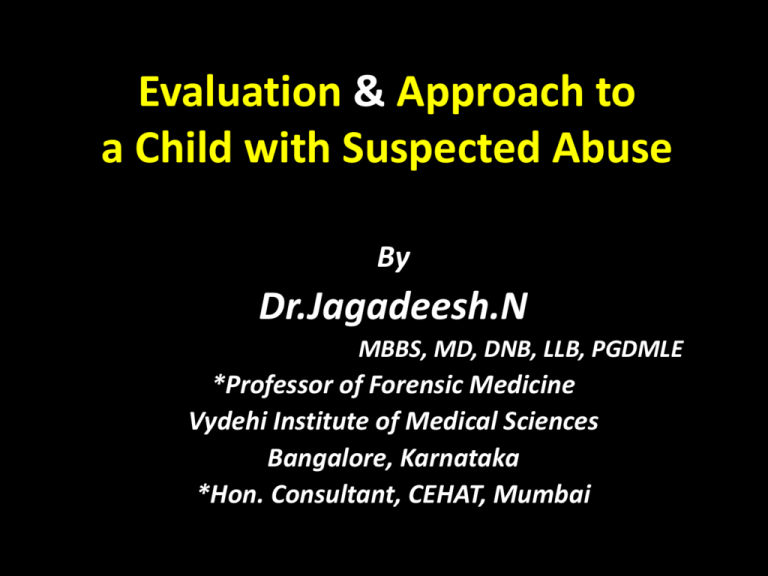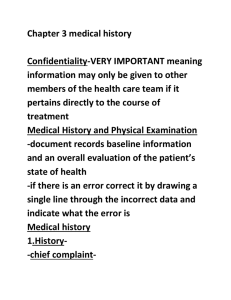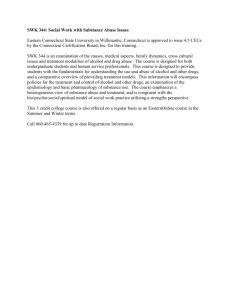
Evaluation & Approach to
a Child with Suspected Abuse
By
Dr.Jagadeesh.N
MBBS, MD, DNB, LLB, PGDMLE
*Professor of Forensic Medicine
Vydehi Institute of Medical Sciences
Bangalore, Karnataka
*Hon. Consultant, CEHAT, Mumbai
Path so far………
• Ancient Greece….. Adults & Boys.. Pedarasty
• Ancient Rome
….. Adult men with young children
• Laws – Great Britain …. Middle ages
……weakly enforced….Child as property
• Nineteenth Century…. Krafft-Ebing…. German
Psychiatrist …. Psychopathia Sexualis in 1886
---- Pedophilia as Pathological condition
2
Recent Advances ……
• POCSO 2012 – Protection of Children from
Sexual offences Act, 2012 & Rules 2012
• CLA 2013 - Criminal Law Amendment Act, 2013
- changes in IPC, CrPC, IEA……..
• Guidelines from Ministry of H&FW,
Central Government of India, 2014
• Guidelines from Ministry of WCD,
Central Government of India, 2013
• Judgments from Supreme Court & High Court
3
Role of Medical Professionals
including Psychiatrists / MHP
Dual role
• Detect that a child has been or is being abused
- more for Therapeutic purposes
• Confirming that a child has indeed been the
victim of sexual abuse
- more for Forensic/Legal purposes
4
FAQs on Medical Examination
• Why is the medical examination necessary?
• The last time my child was touched in a sexually
inappropriate manner was over a year ago. Is
the medical exam still necessary?
• Is the examination uncomfortable for the child?
• Can the parent(s) be present while the
examination is being conducted?
5
FAQs on Medical Examination
• Is the medical examination of the child
conducted in the same manner as an adult
female gynaecological examination?
• Will the doctor/ nurse be able to tell if there
was penetration? Can you rule out Sexual
assault?
• How is the examination of a boy different from
that of a girl?
• Why can’t a family doctor or another doctor
known to the child do the examination?
6
FAQs on Medical Examination
• Will the doctor/nurse give evidence in court if
needed?
• Will the child have to be sedated for the
examination?
• Where will the medical examination be
conducted?
• What happens after the medical exam, will the
child and his/her parents be allowed to see the
report?
7
FAQs on Medical Examination
• Will the child be tested for HIV/ STDs?
• Who will conduct follow-up examinations, in case
the child needs treatment for STDs or HIV?
• Will the Child become pregnant?
Then what to do?
• What about the child’s mental health needs?
8
Role of Medical Professionals
including Psychiatrists / MHP
• Having an in-depth understanding of sexual
victimization………….. Grooming
• Obtaining a medical history of the child’s
experience in a facilitating, non-judgmental
and empathetic manner
• Meticulously documenting historical details
• Conducting a detailed examination to
diagnose acute and chronic residual trauma
and STDs, and to collect forensic evidence
9
Role of Medical Professionals
including Psychiatrists / MHP
• Considering a differential diagnosis of behavioral
complaints and physical signs that may mimic
sexual abuse
• Obtaining audio/video documentation of all
diagnostic findings that appear to be residual to
abuse???
• Formulating a complete and thorough medical
report with diagnosis and recommendations for
treatment
• Testifying in court when required
10
Mental assessment
• Complex presentation in CSA
– highly trained staff
• Earliest possible intervention
• Multi disciplinary approach
11
Mental assessment
• Step 1. Consider the referral, the safety of the child,
and the aims of the assessment;
• Step 2. Gather additional information;
• Step 3. Categorize available information and organize it
within the Assessment Framework triangle: what is
known and not yet known; (a) Child’s developmental needs;
(b) Parenting capacity; and (c) Family and Environmental Factors.
• Step 4. Analyze the processes influencing the child’s
health and development;
• Step 5. Predict the likely outcome for the child;
• Step 6. Plan interventions;
• Step 7. Identify outcomes and measures, which would
indicate whether interventions are successful
12
Trauma-Focused Cognitive Behavioral
Therapy (TF-CBT)
Acronym PPRACTICE
•
•
•
•
•
•
•
•
•
Psycho-education;
Parenting skills;
Relaxation;
Affective modulation;
Cognitive coping and processing;
Trauma narrative;
In vivo mastery of trauma reminders;
Conjoint child parent sessions;
Enhancing future safety and development
13
Techniques to help the child relax
• Offer clear age-appropriate explanations for the
reasons for each procedure, and offer the child
some control over the exam process.
• Proceed slowly, explain each step in advance.
• Use curtains to protect privacy, if child wishes.
• Explain to parent or support person that their
job is to talk to and distract the child, and the
findings of the exam will be discussed with them
after the exam is completed.
14
Techniques to help the child relax
• Position the parent near the child’s head.
• Use distracters. For example, ask the parent to
sing a song, or tell a familiar story, or read a
book to the child. A nurse or other helper can
do this if the parent is unable.
• Use TV, cell phone game, or other visual
distraction.
• Do not forcibly restrain the child for the
examination
15
Suspect CSA
As Child often does not complain of CSA
MoHFW Guidelines
• Pain on urination and/or
defecation
• Abdominal pain / generalized
body ache
• Inability to sleep
• Sudden withdrawal from peers
/ adults
• Feelings of anxiety,
nervousness, helplessness
• Weight loss
• Feelings of ending one’s life
MoWCD Guidelines
• Vaginal discharge
• Abdominal pain
• Encopresis (Soiling)
• Enlarged hymenal ring???
16
Counseling – is it only on paper?
•
•
•
•
•
•
•
•
PTSD – Post Trauma Stress Disorder
Child Sexual Abuse Accommodation syndrome
Emotion ?
Mental status?
General mental condition
Calm V Disturbed
Model guidelines by Ministry of WCD, 2013
Guidelines & Protocols, Ministry of HFW, 2014
17
MoHFW Guidelines
on Psychological Counseling
• Creating enabling atmosphere……..
Privacy, confidentiality
• Establishing trust…… Shame, fear, threat
• Facilitation & Demystifcation of medical
procedures…… Powerlessness, embrassment
18
MoHFW Guidelines
on Psychological Counseling
• Addressing survivor’s emotional well-being
– sleeplessness, anxiety, nervousness,
crying spells, feelings of ending one's life,
anger and flash backs (RTS, emotional
reactions post rape) – Crisis Counseling –
not loss of honour – not an act of lust – you
are not responsible
• Safety assessment
• Role of family, friends & community
19
Investigative Formats -Forensic Role
• Gardner’s True and False Accusations of Child
Sexual Abuse (1992) and Protocols for the SexAbuse Evaluation (1995)
• Greenberg’s Conducting Unbiased Sexual Abuse
Evaluations (1990)
• Boat and Everson’s Structured Interview Using
Anatomical Dolls (1986)
• Hindman’s Sixteen Steps Toward Legally Sound
Sexual Abuse Investigations (1987)
• Raskin and Esplin’s Statement Validity Analysis
(1991)
• Michael Lamb “Consensus Statement” (1994)
20
Areas of consensus amongst
investigative formats
X - Investigator his/her own emotions and possible
biases regarding child sex abuse
• well-trained & experienced forensic interviewer
• Free narrative from the child in response to
open-ended questions
• Structured interview technique
• Interviewer and child’s behavioral responses
should be recorded – Video/Audio/Notes
21
Areas of consensus amongst
investigative formats
• developmental difficulties in differentiating
from fantasy and real life events
• Child’s ability to distinguish between truth and
falsehood
• Structured instruments and not by “gut
feelings”
• Non communicative under 5 children – use of
Tools & Props – Dolls, human figures
• Medical examination commonly do not show
evidence of sexual abuse
22
To conclude
• Believe that recovery from abuse is possible
• Strategies such as good touch and bad touch
• Restricting child's mobility-perceived by the
child as punishment
• Encourage the child to carry on with his/ her
daily routine.
• Follow up with crisis counseling so that the
child is able to deal with negative feelings and
also heal from the abuse.
23
To conclude
•
•
•
•
•
•
•
Informed consent – 12 years of age
Assent of the child
Accompanying person – could be the Abuser
Do not assume young child cannot give history
Believe what is being reported by the child
Confidentiality, Privacy
Non-judgmental, Empathy, Facilitating
24






